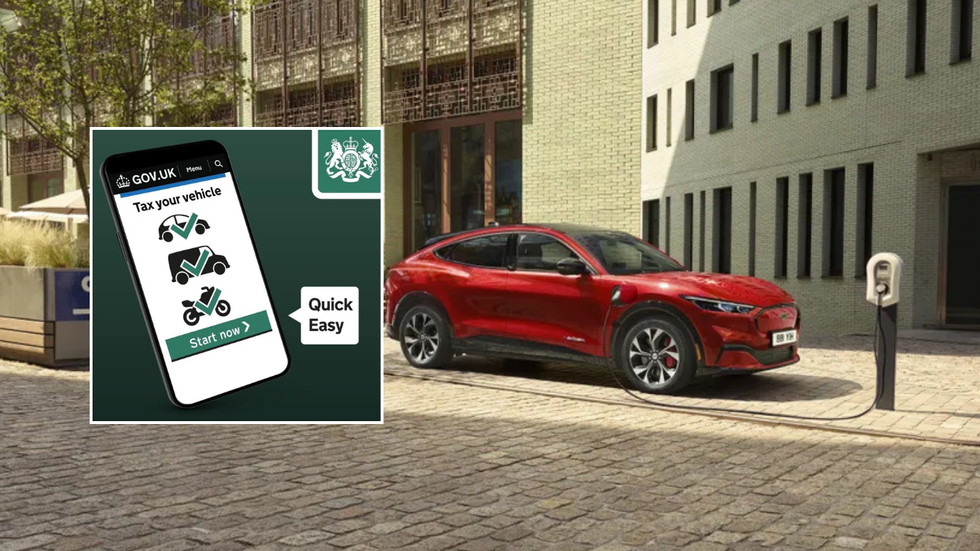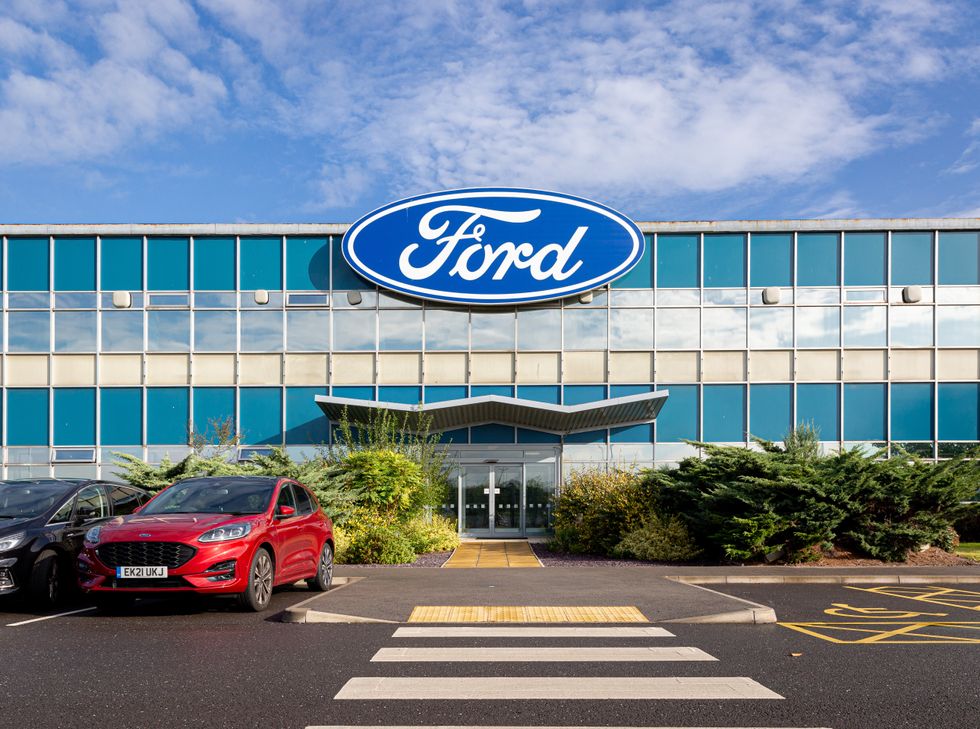WATCH: Rachel Reeves says she will continue to support the purchasing of electric vehicles
GB NEWS
Ford warned that without tax cuts, the UK will not meet its EV targets
Don't Miss
Most Read
Trending on GB News
Labour has been urged to give drivers tax breaks for switching to an electric car as the car industry calls for desperate action.
The call for incentives comes from the boss of Ford UK, who warned that without more measures, carmakers will miss stringent net zero targets.
The industry push for tax incentives comes as carmakers face severe requirements to meet zero-emission vehicle targets, with manufacturers potentially facing fines if sales targets aren't achieved.
Lisa Brankin, chairman and managing director of Ford UK, told BBC Radio 4’s Today Programme that the real issue is that “customer demand isn’t at the same level as the Government mandate”.
Do you have a story you'd like to share? Get in touch by emailingmotoring@gbnews.uk

The boss of Ford UK warned that without tax cuts, drivers will be less likely to switch to an EV
FORD/DVLA/X
She said: “We’re not seeing customers coming and wanting to buy electric vehicles, either cars or vans. We have repeatedly said that we support the Government’s trajectory and we support the ambition the Government has set out. It’s just that there isn’t customer demand.”
Last night, Business Secretary Jonathan Reynolds confirmed plans that the Government would be looking into updating the Zero Emissions Vehicle mandate.
Brankin stated: “The one thing that we really need from the Government is government-backed incentives to urgently boost the uptake of electric vehicles, because without demand the mandate just doesn’t work. With that incentive, company car drivers are actually making the switch to electric well ahead of the trajectory.”
She warned that without consumer incentives, the Government may need to consider either scrapping or delaying its targets, which could threaten commitments to achieve net zero carbon emissions by 2050.
Under current ZEV rules, car manufacturers face financial penalties if they fail to ensure 22 per cent of their sales come from electric vehicles this year with this target increasing dramatically to 80 per cent by 2030.
However, Brankin noted that EV tax cuts do work, flagging how the company car sector has demonstrated how effective Government policy can be in driving EV adoption. She added: "The really important thing is that the consultation is fast, and that the Government acts quickly as a result of it."
Ford has made substantial investments in electric vehicle production already investing £1.6billion in EV production facilities in Cologne. But due to the push for electric cars, not just in the UK but across Europe, the company has been struggling.
Last week, Ford made the decision to cut around 14 per cent of its European workforce with roughly 4,000 jobs being impacted. Meanwhile, Vauxhall announced plans to close its Luton factory after nearly 120 years, putting 1,100 jobs at risk.
READ MORE: Nigel Farage just issued stern warning over China but is it valid?
The closure decision was specifically linked to the context of the ZEV mandate, according to Vauxhall's owner Stellantis.
Brankin described the situation as a "really challenging problem" for Ford, particularly in Britain and Europe, saying "we need to make it work to deliver the CO2 target and also to deliver on the investment that we have made."
Last night the Business Secretary said: "I'm going to be frank with you - I don't believe the policies that we have inherited, and I mean specifically in relation to zero-emission vehicles, are operating today in a way anyone intended them to. We get the seriousness of the situation and we get the urgency."
After hearing from the industry, the Government did pledged to help driver EV uptake through a £300million investment.
LATEST DEVELOPMENTS:
- UK road network needs massive financial lifeline to prevent thousands of deaths - 'Good value for money'
- Keir Starmer accused of 'not caring' about lost jobs at Vauxhall's Luton plant in fierce PMQs clash
- Britons face Christmas havoc as thousands of drivers consider strike action - 'Critical crossroads'

Ford revealed last week that it would cut around 14 per cent of its European workforce
FORDThe Government has already committed an additional £2billion to support the transition of domestic manufacturing but has been warned that these measures still fall short of the 22 per cent EV sales target.








